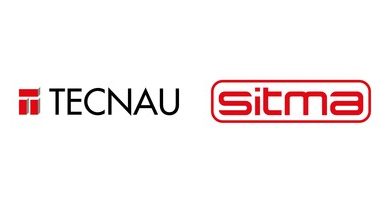
CED Calls for Bold Action to Protect US Leadership in Science and Technology
NEW YORK, Oct. 21, 2025 /PRNewswire/ — Public investment in research has driven some of the most transformative breakthroughs of the modern era, from the internet and GPS to cancer treatments and clean energy. Yet today, federal research and development (R&D) accounts for just 3% of the US budget—half the share it held 30 years ago.
While the US has long been a leader in science and technology, that position is now at risk. Declining investments and rising global competition, especially from China, are threatening the nation’s edge in innovation.
To strengthen that leadership, a new report from the Committee for Economic Development (CED), the public policy center of The Conference Board, outlines a national strategy centered on smarter federal investment, stronger oversight, expanded talent pipelines, and public-private partnerships.
“If the US is to stay ahead in the era of AI, advanced computing, and heightened geopolitical tensions, we must recommit to the strategy that fostered US innovation in the first place,” said David K. Young, President of CED. “This means wise and fiscally responsible investment in research, talent, and impactful partnerships.”
Improve Oversight, Evaluation, and Impact of Public Investments
Policymakers should improve oversight and evaluation of public R&D spending to restore confidence in the stewardship of public funds.
- Protect national security by improving vetting of researchers to mitigate national security threats.
- Improve financial accountability through enhanced tracking and measurement of the ROI of publicly funded research and its contribution to private sector innovations and job growth, as well as improved project management and cost oversight of major infrastructure projects.
- Strengthen coordination and operations by reducing duplication across intramural (work done by Federal researchers) and extramural research (work done by funded researchers such as those at universities); facilitating building on past work, where appropriate; reforming defense contracting to streamline procurement and increase efficiency while keeping core government functions intact; and harmonizing administrative and peer-review processes across funding agencies.
Leverage Public-Private Partnerships for National Priorities
Recognizing the critical role of many different types of public-private partnerships in facilitating scientific research and commercial advances, policymakers should consider additional strategic partnerships to address national priorities.
- DARPA, ARPA-E, and ARPA-H have proven to be successful models that could be replicated for other domains, including semiconductors and advanced computing (ARPA-C) and agriculture (ARPA-Ag).
- Using the Apollo Program and Human Genome Project as guides, policymakers should clearly define national priorities—such as energy production and transmission, cybersecurity, robotics, microelectronics, and health—to help prioritize investments and coordinate partners.
- Agencies should work to align the R&D and procurement processes to both build new markets for technologies and ensure agency access to cutting-edge innovations.
- Other types of public-private partnerships include Federally Funded Research and Development Centers, University-Affiliated Research Center Laboratories, and agency-affiliated charitable organizations (e.g., the Foundation for the National Institutes of Health).
Ensure Availability of a Highly Skilled Workforce and Entrepreneurs
The US needs an ample supply of highly skilled workers and entrepreneurs to achieve its R&D objectives and maintain scientific leadership.
- Congress should provide additional funding to expand agencies’ fellowship and training programs to help build the next generation of researchers.
- Congress should provide a near-automatic pathway to permanent status for international students graduating with degrees in high-demand STEM fields, particularly those that have already worked on Federally funded research projects.
- To align immigration with labor market needs and maintain US economic competitiveness, policymakers should significantly expand employment-based visa allocations and expedite visa processing, particularly for high-demand occupations.
- Leverage PPPs to increase access to STEM internships and apprenticeships.
- Invest in STEM education and workforce training at all grade and age levels, including preparing those currently in the workforce for an AI-driven economy and expanding technical career training programs.
Prioritize Federal Investments in Research & Development
Congress should prioritize R&D funding while improving oversight and evaluation, including in basic and other research where government investments play a particularly important role.
- Invest in extramural and intramural research programs across federal agencies.
- Maintain actual appropriations at least at the levels Congress has authorized.
- Broaden the geographic and institutional footprint of the federal R&D apparatus.
- Reduce the maintenance backlog at federal research facilities.
- Ensure that changes to indirect cost policies do not threaten research.
About The Conference Board
The Conference Board is the member-driven think tank that delivers Trusted Insights for What’s Ahead.™ Founded in 1916, we are a non-partisan, not-for-profit entity holding 501(c)(3) tax-exempt status in the United States. TCB.org
The Committee for Economic Development (CED) is the public policy center of The Conference Board. The nonprofit, nonpartisan, business-led organization delivers well-researched analysis and reasoned solutions in the nation’s interest. CED Trustees are chief executive officers and key executives of leading US companies who bring their unique experience to address today’s pressing policy issues. Collectively, they represent 30+ industries and over 4 million employees. TCB.org/us/Committee-Economic-Development
View original content to download multimedia:https://www.prnewswire.com/news-releases/report-us-risks-losing-innovation-edge-302590240.html
SOURCE Committee for Economic Development of The Conference Board (CED)





